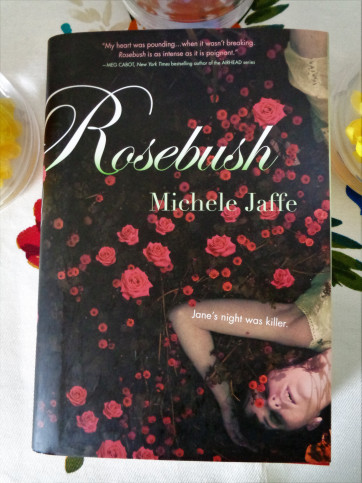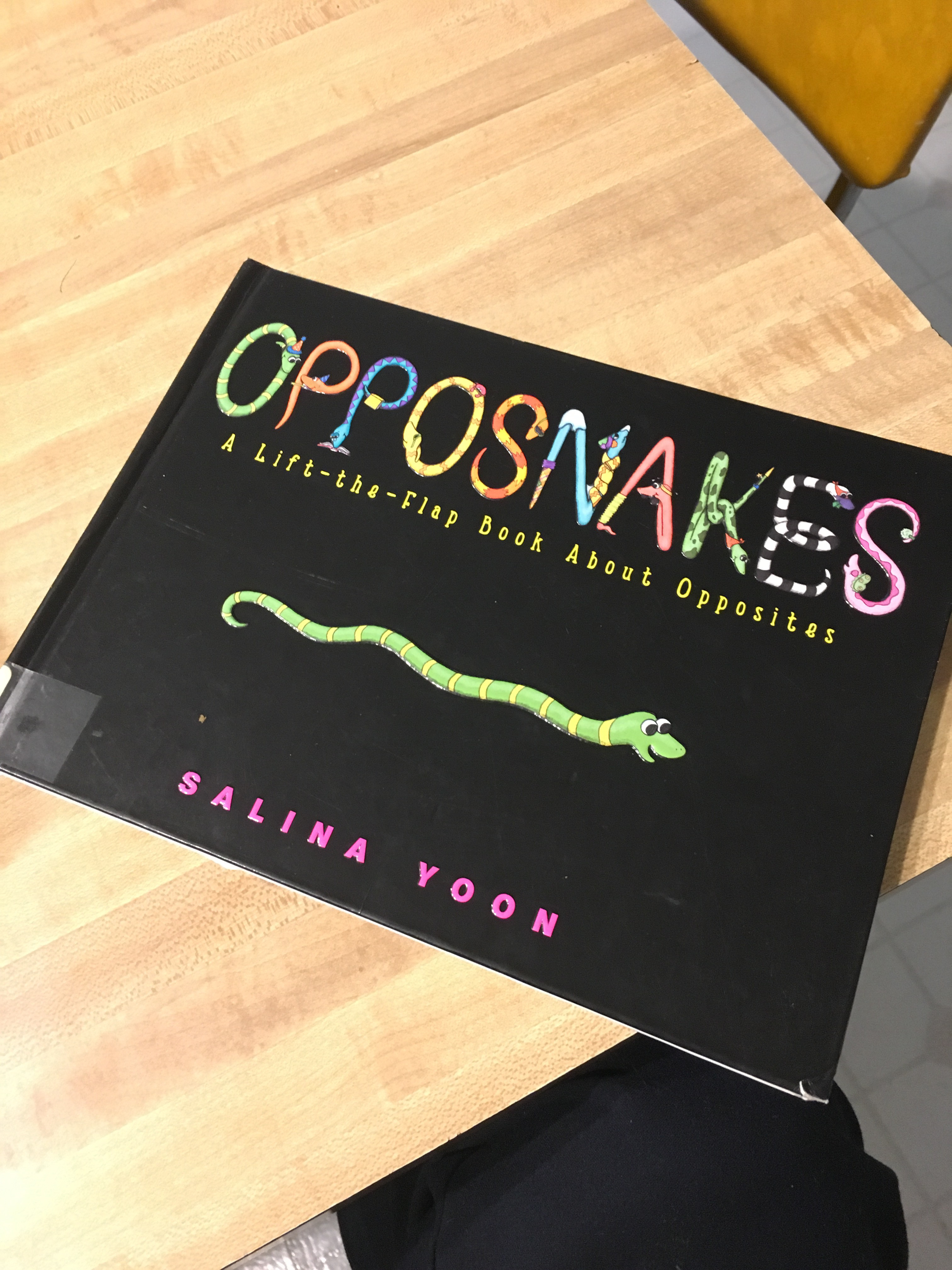A custom hay operator. The joys of the job. Everyday there is a new field to bale, or a new farm to go to wrap hay for. These farms can take you as far away from home base as you would like. You can be a half mile down the road at the neighbor’s place, 2 hours away from home, or 2 days away from home. You get to meet some amazing people, that manage their farms in very different ways.
Fall and Cornstalks
While my custom business is still growing, along with trying to find a way to expand the business into a year around business. The main proponent has been haying for the last 6 plus years. While haying occurs mostly during the summer months allowing, me to operate during the summer break of schooling. There is an overlap time in the fall of the year with schooling and this leads to some challenging times of coordinating classes with good weather, and a very helpful father. Trying to make cornstalk bales, and get some cornstalks wrapped for farmers in the fall of the year is always a fun time for me. For I get to go from classes to the equipment.
Summertime and Baleage
During the summer is where the equipment that I have purchased for this business really shines. For several reasons, I have focused my machinery towards a commonly known practice but rarely implemented practice of baleage. Baleage is a simple way of being able to make hay without having to wait for the hay to dry down for 3 or 4 days. Baleage is hay or forages that are put up in a wet state, then wrapped to seal the oxygen out of the crop. This creates silage in bale form. For this I have purchased the main item in making baleage, which is a bale wrapper. This machine covers the bales in 8 layers of plastic, of which is an oxygen barrier. Allowing the bales to go through the fermenting process, and creating baleage. The other machine that I have purchased to drive this change in the forage industry has been a silage special round baler. This
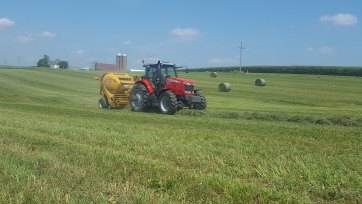 Photo taken by Alex Dambman, viewing the tractor and specialty baler in the field.
Photo taken by Alex Dambman, viewing the tractor and specialty baler in the field.
machine turns the hay crop into round bales, like conventional round balers only this one is special. It has been designed and built to handle this heavy wet and sometimes sticky forages. While also having a special chopping rotor in the throat of the machine. This cuts the hay from long stem material into material that rarely gets over 4 1/2” in length. Cutting the material helps with feeding the material for several reasons. First it is easier to pull apart, with baleage the hay sticks together more and can sometimes be challenging to break the bale apart. Also, it reduces the amount of wasted hay when feeding to cattle, for they are only able to grab a mouth full, rather than a mouthful and plenty of extra that they are rarely able to get into their mouth.
Typical summertime day
So, the actual typical day in the summer. Usually starts with a morning greasing and servicing of equipment. Along with a double check of the amount of Net wrap and Plastic that is in storage. The experience of a shortage of net wrap and or plastic during a busy day of baling and or wrapping is something that I do not like to experience. There’s also a morning list of phone calls to make to the farmers that we finished wrapping their hay later in the night. While also calling a making a schedule for the day of what and where the baler is needing to go, and to what time the baler should be done baling for the day. This is an important detail for the day, for this is also the time that we get to get started wrapping all the baleage made that day. For any of the baleage bales that were baled, have a 24-hour time of which they must get wrapped, or the nutrient amount of the bale starts to decline so rapidly that the baleage can turn into a product that has no value other than returning some organic matter back to the soil. Therefore, I try to and focus on wrapping, all the baleage that I must wrap within a 12-hour time of which it is baled. This 12-hour goal, creates some long nights of wrapping on occasion. For most
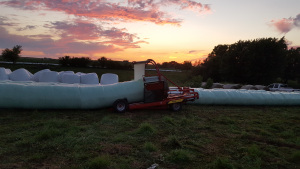 Photo taken by Alex Dambman, viewing the bale wrapping, wrapping baleage.days during the summer, the baler is busy baling hay from roughly noon till 7:30 or 8 depending upon the day could go later or could also be shorter. It is then that, most of the customers have the baleage bales moved to the location that they are wanting to wrap. It’s usually then when the wrapper can then get started wrapping the hay that was made that day. While the wrapper tends to be a faster machine at handling a larger number of bales. It only takes several farmers to have bales to wrap that can make a night long. While most nights we’re done wrapping the baleage by 10 or 11o’clock at night, there are nights that lots of farmers have baleage to wrap and they have large number of bales. This can lead to the nights getting stretched into the 2 or 3o’clock in the morning.
Photo taken by Alex Dambman, viewing the bale wrapping, wrapping baleage.days during the summer, the baler is busy baling hay from roughly noon till 7:30 or 8 depending upon the day could go later or could also be shorter. It is then that, most of the customers have the baleage bales moved to the location that they are wanting to wrap. It’s usually then when the wrapper can then get started wrapping the hay that was made that day. While the wrapper tends to be a faster machine at handling a larger number of bales. It only takes several farmers to have bales to wrap that can make a night long. While most nights we’re done wrapping the baleage by 10 or 11o’clock at night, there are nights that lots of farmers have baleage to wrap and they have large number of bales. This can lead to the nights getting stretched into the 2 or 3o’clock in the morning.
My thoughts
While working late into the night to get the job done is not what I would call an ideal work schedule. Along with the amount and value of equipment needed to operate a custom haying operation like this is large for anyone trying to get into the market. This industry is one that I have deep connection with. The farmers I get to meet and work with are what I believe some of the best at doing what they are doing. While I also enjoy this industry, while getting to travel to new areas, new farms, and get to change up the forages that we get to bale. Changing the way that a practice that we do daily, keeps it very interesting and challenging in day to day operations. Would I build this operation the way I have if I could go back? I wouldn’t want to change a way I have done anything with this operation. The niche market that I have opened with the special baler, and wrapper has given me more work than I thought it would originally. Driving my love for this industry, which is know what I hope to continue after gradation in May 2018.
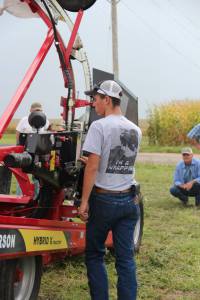 Photo by family member, of Alex Dambman
Photo by family member, of Alex Dambman
My name is Alex Dambman and I am a senior at Western Illinois University. Majoring in Agricultural business. With hopes to return home and continue this custom operation, and or take over the family business.
Advertisements Share this:


